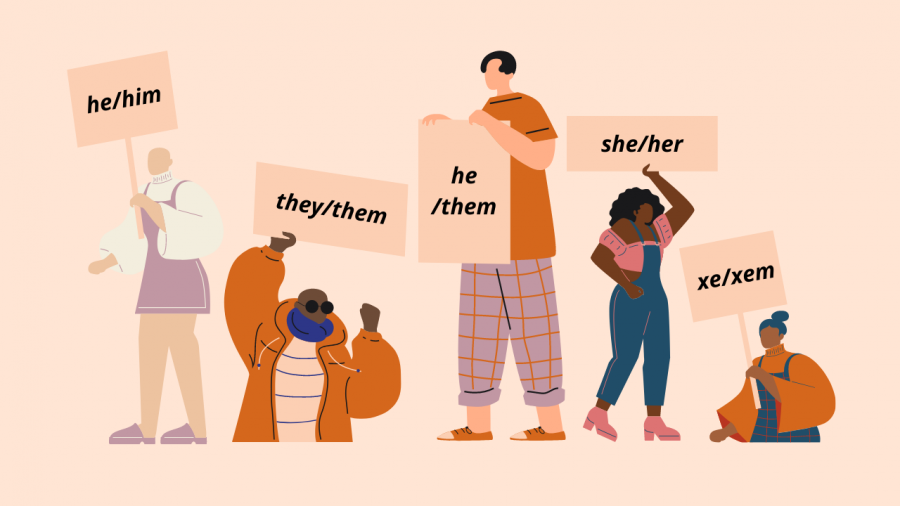Why You Should Stop Assuming Pronouns
Misgendering has serious negative personal and societal consequences.
October 31, 2020
Imagine when meeting someone for the first time they address you by the wrong name, even before you got to offer a handshake and introduce yourself. How would you react? You would probably say, “That’s not my name,” and correct them. What if they respond with, “Well, you look like that name,” and keep calling you the wrong name, even if you express discomfort and continually correct them?
Just as assuming names is wrong, assuming pronouns is disrespectful to others’ identities. Yet people continue to misgender because they think they can guess pronouns based on the “context clues” of a person, like their clothing or how they act.
Assuming pronouns puts your own convenience above the respect of someone else. When you assume someone’s pronouns based on their appearance or actions, you push your beliefs about gender onto someone else’s right to identify themself.
The Center for Inclusion and Social Change at the University of Colorado gives an example of the danger and disrespect that is produced by misgendering: “It is never safe to assume someone’s gender, and living a life where people will naturally assume the correct pronouns for you is a privilege that not everyone experiences.” Fortunately, we have the chance to respect others and decrease these harmful experiences by simply asking for pronouns or using gender-neutral pronouns instead of making assumptions.
Some may argue that assuming someone’s pronouns is easier than asking because they are usually right in their speculations. Guessing may save the hassle of asking, yet it is based only on the cardboard cutouts of gender in your head and not definitively reflective of someone’s gender identity. Speculating pronouns based on someone’s appearance, behavior, interests, or name enforces baseless and harmful stereotypes about gender and enforces the belief that gender is binary: people are either a woman or a man.
The assumption of pronouns also disregards that gender is a social construct and holds no biological basis. People who argue that only two genders exist typically use gender and sex interchangeably, but they are not the same. Sex has a biological basis, and gender does not. Gender also has historically been used to restrict and control people by confining them to societally deemed gender “appropriate” behaviors, interests, clothes, and jobs. Contrastly, the World Health Organization recognizes that gender expectations are socially constructed and thus vary between cultures and can change over time. They state that it is important to recognize and respect the identities that exist outside of the binary male and female categories. How you act or what you like has no logical basis in sex or gender, despite society’s best efforts to box people in with biases and mindsets through systemically establishing our own thinking and the way our societies function as a whole.
Misgendering plays into discriminatory practices by exclusively assigning pronouns to specific appearances or demeanors, and overlooks that there is no real basis for why roles and behaviors have to exclusive to definitive genders. If we want to put an end to the discrimination and restrictions that stem from socially construed perceptions of gender, we must begin with ourselves. Begin asking for pronouns or use gender-neutral pronouns like “they” and “them.” Just because assuming pronouns works “most of the time,” does not mean it is right.

